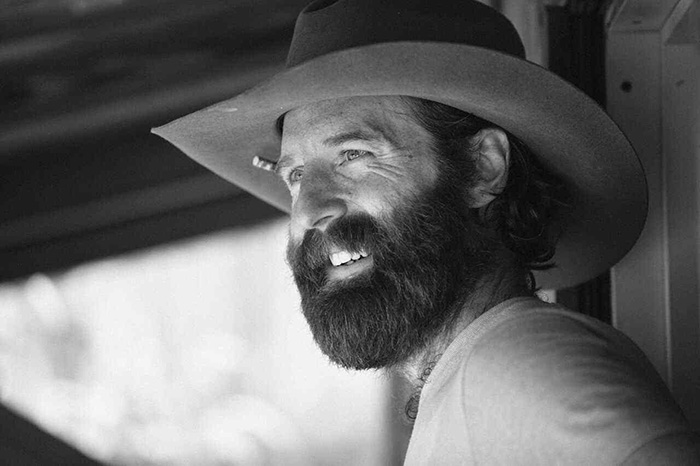By SEAN DIETRICH
Morning. The lobby of my hotel is crowded. It’s breakfast time.
This is the moment of day when guests emerge from rooms with messed-up hair, bedroom slippers and wrinkled clothes. They shuffle through corridors toward Bunn coffee machines like the living dead.
I’m eating processed “scrambled-egg-like” matter, and sausage that has been labeled “100% real meat.”
There is an elderly man in line who uses a mechanical wheelchair. He wears a green ballcap with “Vietnam” printed on the front.
He cannot reach the buffet-serving spoon because his wheelchair is too low.
Behind him in line is a boy. The kid has reddish hair and freckles. He is full-faced and friendly.
“Here,” says the boy, “allow me.”
The kid uses the serving spoon to dish the “eggish” aberration onto the old man’s plate. The old man thanks him.
“What else do you want on your plate?” Junior asks.
The old man says, “Oh, don’t worry about me, I can help myself.”
“I don’t mind. I’ll help you.”
The old man just smiles at the kid. This man is perfectly capable of fixing his own plate, but sometimes an act of service isn’t about the servee.
“OK,” says the old man.
The boy points to the sausage. “Would you like some of this stuff?”
“Yes, please.”
“How much would you like?”
“I’ll say ‘when.’”
The boy wrinkles his face. “When?”
“It’s what people say whenever they’ve had enough of a good thing.”
The boy still doesn’t understand. “They say ‘when’?”
“That’s right.”
The boy starts dishing up the faux-meat patties until the old man says, “When.”
“Would you like an apple or banana?” the boy says.
The old man shakes his head. “Only fruit I eat comes in a wine glass. But I’ll take some orange juice.”
The boy removes a plastic cup from a stack. He fills it from the Star-Trek-like juice dispenser.
“How about some bread?” asks the kid.
“A bagel. And I want it toasted.”
The boy fetches a bagel from the acrylic breadbox. Then he carefully splits the bagel, using his bare hands. He manhandles the bagel like a kid playing with Play Dough.
“Don’t worry,” says the kid. “I washed my hands.”
“How reassuring.”
The boy places the mangled bagel halves into the conveyor toaster oven. A marvelous machine. As they are waiting for the toast, the kid speaks. “Were you in a war?”
“Yes.”
“The Vietnam War?”
“Uh-huh.”
“Was it hard?”
“Well, it certainly wasn’t soft.”
The boy smiles politely. He realizes he’s asked too much. His parents have raised him not to probe. So he falls quiet.
The old man breaks the awkward silence. “Tell me, how old are you?”
“Thirteen.”
The old man nods. “I was six years older than you when I went over.”
“To Vietnam?”
“Cambodia.”
“Did you fight?”
“Yes.”
The boy says nothing.
“But people don’t understand,” the old man says. “Most folks thinks we all carried rifles and patrolled the jungles, and got shot at. But it wasn’t like that for everyone. Some of us saw combat. Some didn’t.”
“Did you see combat?”
“I did.”
“What did all the other people do?”
“Six out of seven guys during Vietnam served on bases, or worked intelligence. Some were stationed in Germany, or Japan, or here in America. They were cooks, typists, drivers, paper runners and REMFs.”
“What’s a REMF?”
“Never mind.”
The man’s bagel is ready. His slices fall from the chute of the conveyor toaster. A marvelous machine.
“What I mean is,” the old man says, “everyone was important in Vietnam. The soldiers who carried the gear in the rear made it possible for us to take hot showers. The guys who brought food and beer kept us alive.”
“You had beer over there?”
“Oh yes.”
“I bet you were glad to come back home.”
The old man nods. “Yes.”
“Did you get hurt over there?”
“I did.”
The boy goes silent. Then he says, “I’m sorry.”
“Not your fault.”
The kid uses the complimentary tongs to place the bagel onto the man’s plate. He carries the old man’s plate and orange juice to a table in the dining room.
The old man follows, whirring his wheelchair forward. The kid asks if the old man needs anything else. The old man tells him he’s okay from here.
The kid smiles. He presents his young hand like a grown up. Good manners.
The old man pumps the boy’s hand and says, “Thanks for your help today, son.”
“No, sir,” says the kid sincerely. “Thank you for your service.”
When.

